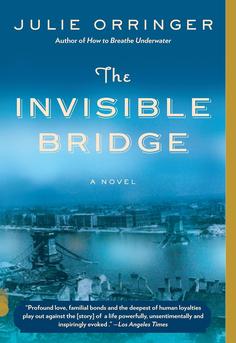|
1. What does the opening chapter establish about the cultural and social milieu of prewar Budapest? What do Andras's reactions to the Hasz household reveal about the status of Jews within the larger society? How do the differences between the Hasz and Levi families affect their assumptions and behavior during the war? Which scenes and characters most clearly demonstrate the tensions within the Jewish community?
2. Why do Andras and his friends at the Ecole Speciale tolerate the undercurrent of anti-Semitism at the school even after the verbal attack on Eli Polaner and the vandalism against Jewish students? To what extent are their reactions shaped by their nationalities, political beliefs, or personal histories? Why does Andras agree to infiltrate the meeting of Le Grand Occident? Is his belief that the police "wouldn't deport me. . . Not for serving the ideals of France," as well as the reactions of Professor Vago and Andras's father to the German invasion of Czechoslovakia, naive-or reflective of widespread opinions?
3. Andras and Klara's love blossoms against uncertainty and fear. Is Klara's initial secrecy about her past justified? Why does she begin an affair with Andras? Are they equally responsible for the arguments, breakups, and reconciliations in their courtship? Do Klara's revelations change your opinion of her?
4. Despite grim conditions, Andras and Mendel produce satirical newspapers in the labor camps. What do these excerpts show about strategies that preserved humanity and sanity? What other survival techniques do the laborers develop?
5. In Budapest, the Levi and Hasz families sustain themselves with small pleasures and daily tasks. Are they driven by practical or emotional needs, or both? Does maintaining ordinary life represent hope and courage, or a failure to recognize encroaching danger? Which characters are least able-or willing-to accept the threats to homeland and culture?
6. Which details in the descriptions of Banhida, Turka, and the transport trains most chillingly capture Nazi cruelty? Beyond physical deprivation, what are the psychological effects of rules and laws imposed on civilians?
7. Consider General Marton, Captain Erd?, General Vilmos Nagy, and Miklos Klein. What motivates their actions? What ideals underpin Nagy's speech to the officers-in-training? (He was later named Righteous Among the Nations.)
8. Why does Klara refuse to leave Budapest for Palestine? Is her decision personal, or reflective of broader attitudes among Hungarian and European Jews?
9. Discuss the value of Jewish beliefs and traditions to Andras and others-the High Holidays, weddings, family seders, and prayers in work camps. How do ritual and identity sustain the characters?
10. The narrative tracks political and military upheavals as they occur. What do these reports show about the failure to grasp Nazi objectives? How does the author sustain suspense even when readers know the war's outcome?
11. Architecture threads the novel. What does the Pingsson vs. Le Corbusier debate suggest about the architect's role? Why is architecture an apt lens for the book's themes? How does Andras's set-design work fit in?
12. Chance meetings often redirect lives. Which events are the result of luck, and how do these twists create the sense of extraordinary times?
13. Where does choice still matter? How do decisions-Klara's return to Budapest, Gyorgy's payments to authorities, Jozsef's attack-illustrate agency amid chaos?
14. Andras believes in God but not in intervention. What is your reaction to his view? How do your beliefs interpret why terrible events occur?
15. What did you know about Hungary's role in WWII before the novel? Did the book change your understanding of alliances, emigration, or Zionism? What does the epilogue suggest about links between past and future?
16. "In the end. . . the excruciating smallness, the pinpoint upon which every life was balanced." Does the novel capture both the vastness of war and the intimate toll on individual lives?
17. Why has Orringer chosen Wislawa Szymborska's poem "Any Case" as the coda? What does it express about individuals caught in history's flow?
Discussion Questions by the publisher

|

















